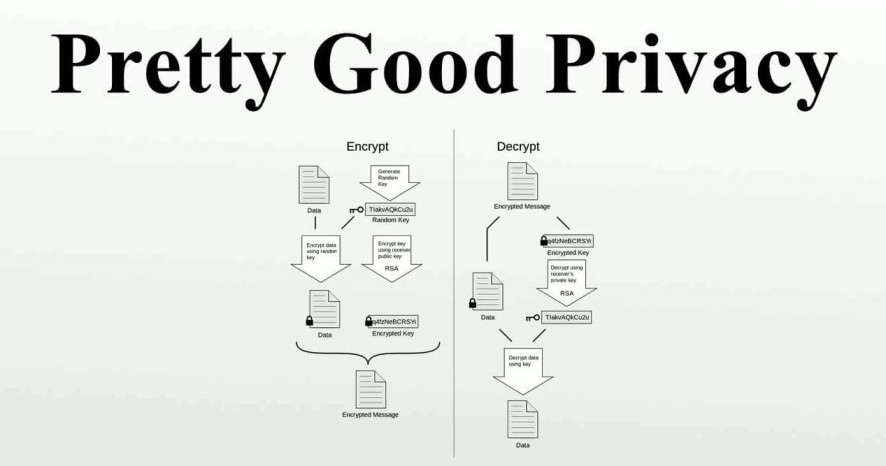Pretty Good Privacy (PGP) is a popular tool that encrypts and decrypts email sent over the Internet and provides cryptographic privacy and authentication for online communication. It becomes the most widely used email encryption protocol. What is PGP and how does it work? PGP encryption employs a combination of data compression, hashing, and public-key cryptography.
It also encrypts data transported over networks with symmetric and asymmetric keys. Pretty Good Privacy combines private-key and public-key cryptography capabilities.
Each stage employs a different algorithm, and each public key has a username and an email address linked with it. PGP was established in 1991 by Phil Zimmermann, a software engineer.
He was an anti-nuclear activist who desired a secure way to send data over the Internet. Zimmermann got into difficulty with the US government in 1993 because his encryption software, Pretty Good Privacy (PGP), crossed international borders and reached a large number of countries throughout the world, in violation of US export prohibitions.
PGP is based on a public key system, in which a recipient has a publicly known key — effectively a very long number — that senders use to encrypt emails they receive.
The recipient must have her own private key linked to the public key in order to decrypt these emails.
The private key is only known by the recipient, ensuring the message’s privacy. Rivest-Shamir-Adleman (RSA) and Diffie-Hellman (DH) are two public key versions of Pretty Good Privacy (PGP). PGP must pay a licence fee to RSA for the RSA version, which uses the IDEA method to generate a short key for the full message and RSA to encrypt the short key. The Diffie-Hellman version encrypts the message using the CAST algorithm for the short key and the Diffie-Hellman algorithm for the long key.
BENEFITS OF PGP ENCRYPTION
- Pretty Good Privacy ensures that sensitive information is always kept private.
On the internet, your Pretty Good Privacy cannot be stolen or read by others. It ensures that information provided or received was not tampered with during transmission, and that files were not altered without your permission. - Information can be safely shared with others, including entire departments and groups of users.
- You know who the email is from and to whom it is sent. Pretty Good Privacy checks the email’s sender to confirm that it was not intercepted by a third party.
- If you use Pretty Good Privacy, hackers will not be able to access your secure emails or communications, and you will not be infected by email attacks.
- Others won’t be able to recover important messages or files that you’ve destroyed.
- The PGP encryption programme is fairly simple to use. Users can learn how to use it almost immediately with little or no instruction.
Why is Pretty Good Privacy (PGP) used?
Some Bitcoin trading platforms, such as Kraken, employ PGP to assist secure user accounts. It’s mostly used to protect sensitive data associated with financial transactions — particularly those that are still in their infancy — as well as to keep cryptocurrency from being stolen.






